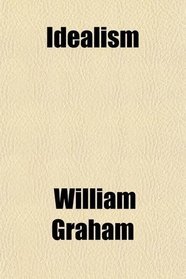Search -
Idealism
Idealism
Author:
Purchase of this book includes free trial access to www.million-books.com where you can read more than a million books for free. This is an OCR edition with typos. Excerpt from book: § 2. Tendency to Idealism in Modern Speculation.— The final aim of all Philosophy has, indeed, ever been one and the same from Plato to Hegel—to find the One in ... more »
Author:
Purchase of this book includes free trial access to www.million-books.com where you can read more than a million books for free. This is an OCR edition with typos. Excerpt from book: § 2. Tendency to Idealism in Modern Speculation.— The final aim of all Philosophy has, indeed, ever been one and the same from Plato to Hegel—to find the One in ... more »
ISBN-13: 9781459086210
ISBN-10: 145908621X
Publication Date: 8/6/2009
Pages: 132
Rating: ?
ISBN-10: 145908621X
Publication Date: 8/6/2009
Pages: 132
Rating: ?
0 stars, based on 0 rating




